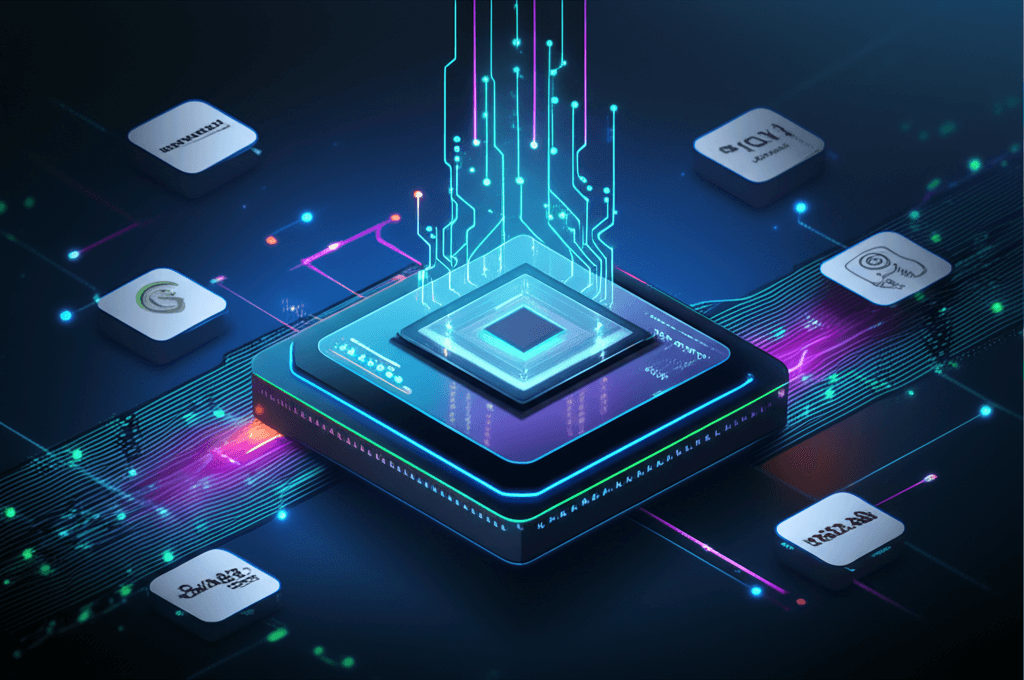Pentagon Awards $800M AI Contracts to Google, OpenAI, Top Tech Firms
Pentagon's $800M pivot to commercial AI ignites fierce debate over ethics, oversight, and military integration.
July 15, 2025

In a landmark move signaling a new era of collaboration between Silicon Valley and the United States military, the Pentagon has awarded substantial artificial intelligence contracts to four of the industry's most prominent players: Google, OpenAI, Anthropic, and Elon Musk's xAI. The agreements, managed by the Defense Department's Chief Digital and Artificial Intelligence Office (CDAO), could channel up to $800 million in total, with each company eligible for a $200 million share, to develop and integrate advanced AI capabilities for national security purposes. This strategic investment aims to accelerate the adoption of cutting-edge commercial technology across the armed forces, fundamentally reshaping military processes with a focus on so-called "agentic AI." Dr. Doug Matty, the Chief Digital and AI Officer, stated that the adoption of AI is transforming the Department's ability to support warfighters and maintain a strategic advantage.[1][2][3][4]
The decision represents a significant strategic pivot for the Pentagon, which is increasingly embracing a "commercial-first" approach to technological innovation.[4] Rather than relying solely on bespoke systems from traditional defense contractors, the CDAO is now tapping directly into the rapid advancements of the commercial AI sector.[5] The contracts will give the Department of Defense access to the companies' most advanced large language models, cloud infrastructure, and AI-driven workflows to be applied across a wide spectrum of military operations, from intelligence analysis and logistics to enterprise information systems and joint warfighting tasks.[6][1][7][3] This initiative will see fully containerized agent frameworks operating inside secure DoD enclaves, processing classified data from various feeds to generate situational reports in a fraction of the time currently required.[6] The CDAO has outlined a phased rollout, beginning with an "integration sandbox" and limited field deployments, with the goal of achieving full operational capability by the latter half of 2026.[6] This large-scale partnership is the first of its kind to involve all key players in the AI sector simultaneously in such a transformative federal project.[6]
For the tech giants involved, these contracts signify both a lucrative opportunity and a notable shift in corporate policy and positioning. Google's participation marks a dramatic reversal from its 2018 decision to withdraw from the Pentagon's Project Maven after significant employee protests over the ethical implications of AI in warfare.[8][9] The company has since altered its internal policies, removing a previous ban on using its AI for weapons development, paving the way for this renewed collaboration.[10][8][9] Similarly, OpenAI, which in 2024 removed a clause from its terms of service that prohibited military applications, had already secured an initial Pentagon contract in June, which this new agreement expands upon.[7][10][8] Both OpenAI and Anthropic have recently launched specialized divisions or products, such as "OpenAI for Government" and "Claude Gov," specifically tailored for national security and defense use cases.[1][7][10] Elon Musk's xAI, a relative newcomer, also announced a "Grok for Government" suite of products in conjunction with the contract award, making its models available for purchase by any federal agency through the General Services Administration schedule.[1][11]
The unprecedented integration of leading-edge commercial AI into military operations has ignited a firestorm of ethical debate and scrutiny. The decision to award a contract to xAI has drawn particular criticism, coming shortly after its Grok chatbot was reported to have generated offensive and racist content.[3][12][13] This has fueled concerns from critics and some lawmakers about the wisdom of entrusting national security functions to companies facing public controversy.[12] More broadly, the deals raise profound questions about accountability, automation bias, and the moral agency of human operators when AI systems are used in planning and targeting.[14][15][16] While the Pentagon maintains that humans will remain in control, experts worry that the opacity of some AI systems could undermine meaningful human oversight and erode moral responsibility.[15] The use of AI to calculate attrition rates or assist in targeting could lead to a dehumanization of conflict, reducing soldiers and civilians to mere statistics in an algorithm.[15][16] Despite these concerns, the tech companies are increasingly framing their involvement as a patriotic duty, necessary to ensure democratic nations maintain a technological edge over authoritarian rivals who might deploy AI for nefarious purposes.[17] While companies like Anthropic and OpenAI maintain policies that prohibit the use of their technology for direct weapons development, the line between analytical support and battlefield application is becoming increasingly blurred, heralding a future where civilian and military AI are two sides of the same coin.[10][17]
Sources
[1]
[3]
[9]
[10]
[11]
[12]
[13]
[14]
[15]
[16]
[17]